The Role of Consumer Behavioural Factors in Customer Retention
VerifiedAdded on 2023/04/07
|8
|456
|169
Report
AI Summary
This report investigates the role of consumer behavioural factors in influencing customer retention, highlighting the significance of retaining customers for organizational success. It emphasizes that customer retention is more cost-effective than customer acquisition and explores how machine learning techniques can minimize customer churn in the fintech sector. Various models, such as SVM, Random Forest, and Naïve Bayes, are discussed in terms of their application in predicting customer behaviour and improving customer retention strategies. The report also notes the increasing adoption of advanced technologies by banks to remain competitive in the fintech landscape, stressing the importance of providing structured quality service and customer satisfaction to foster long-term customer commitments.
1 out of 8
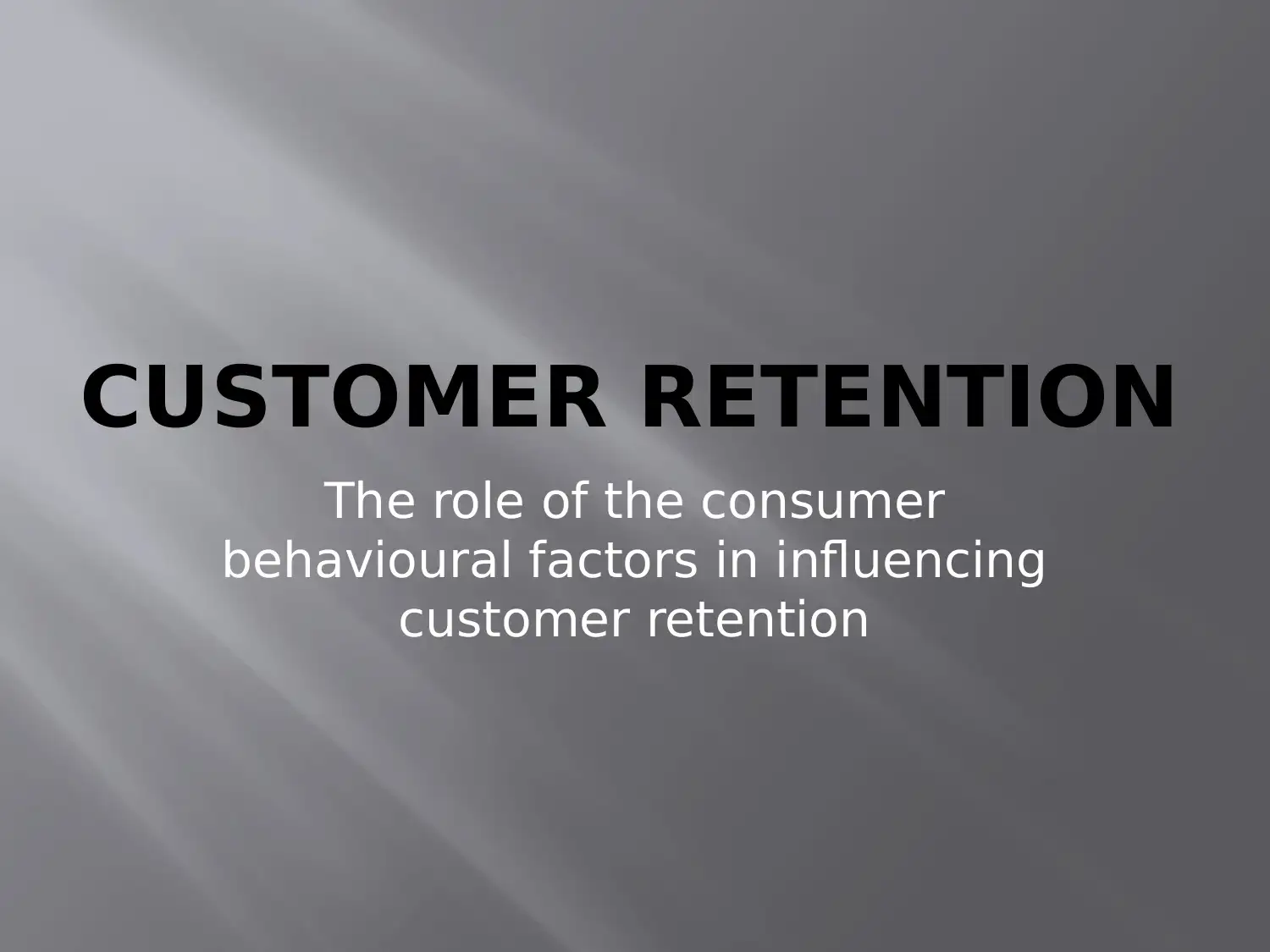
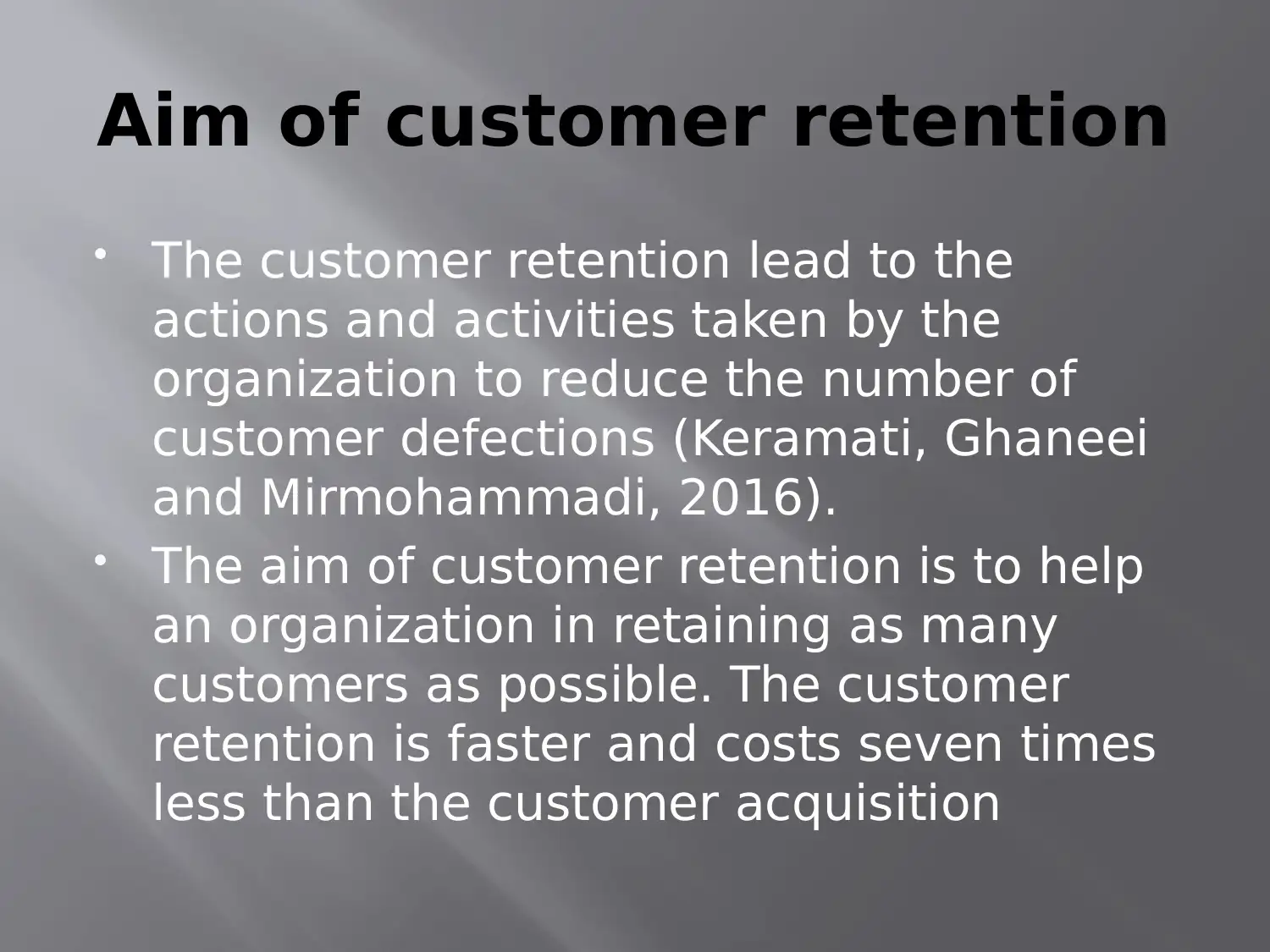
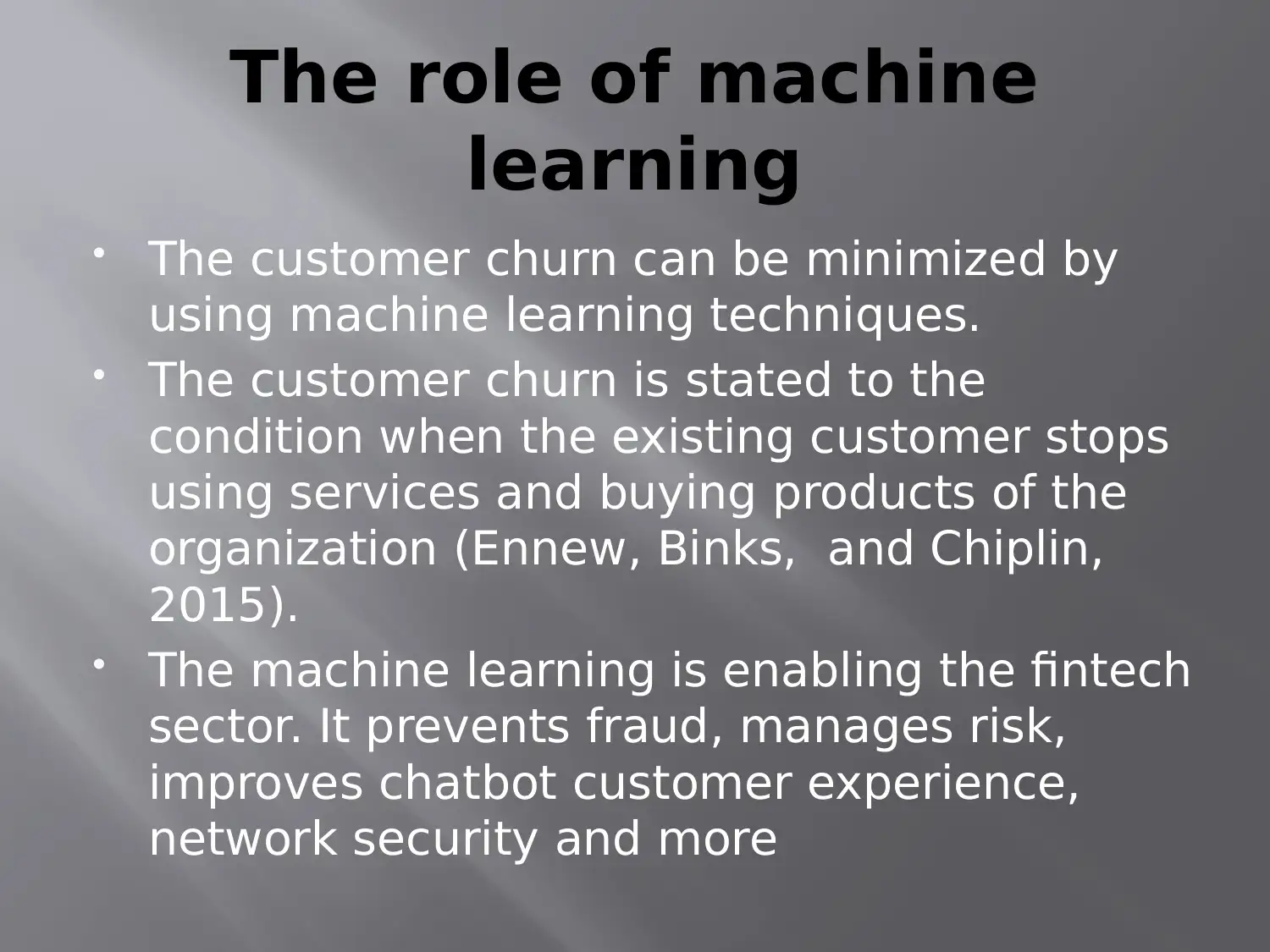

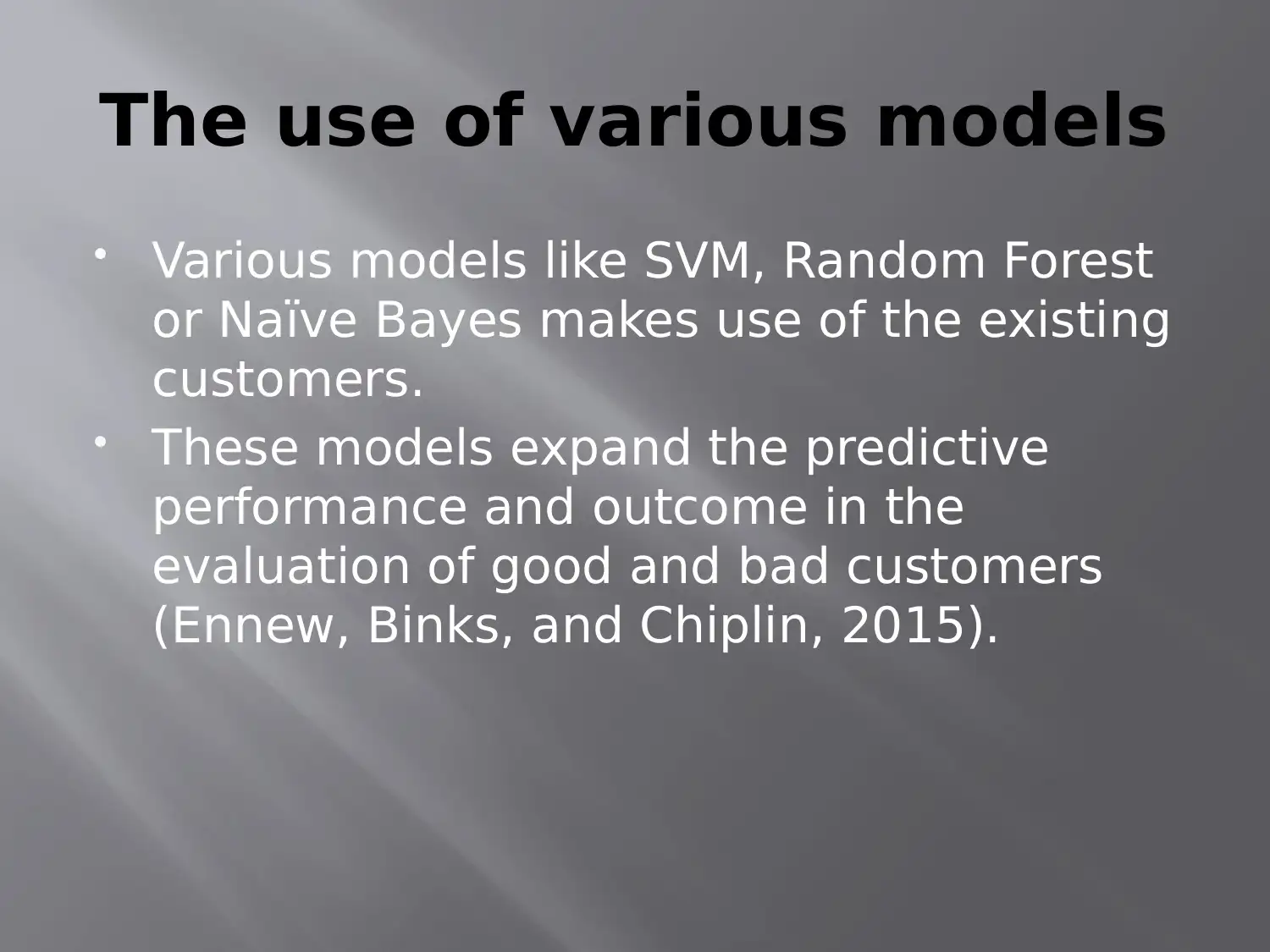
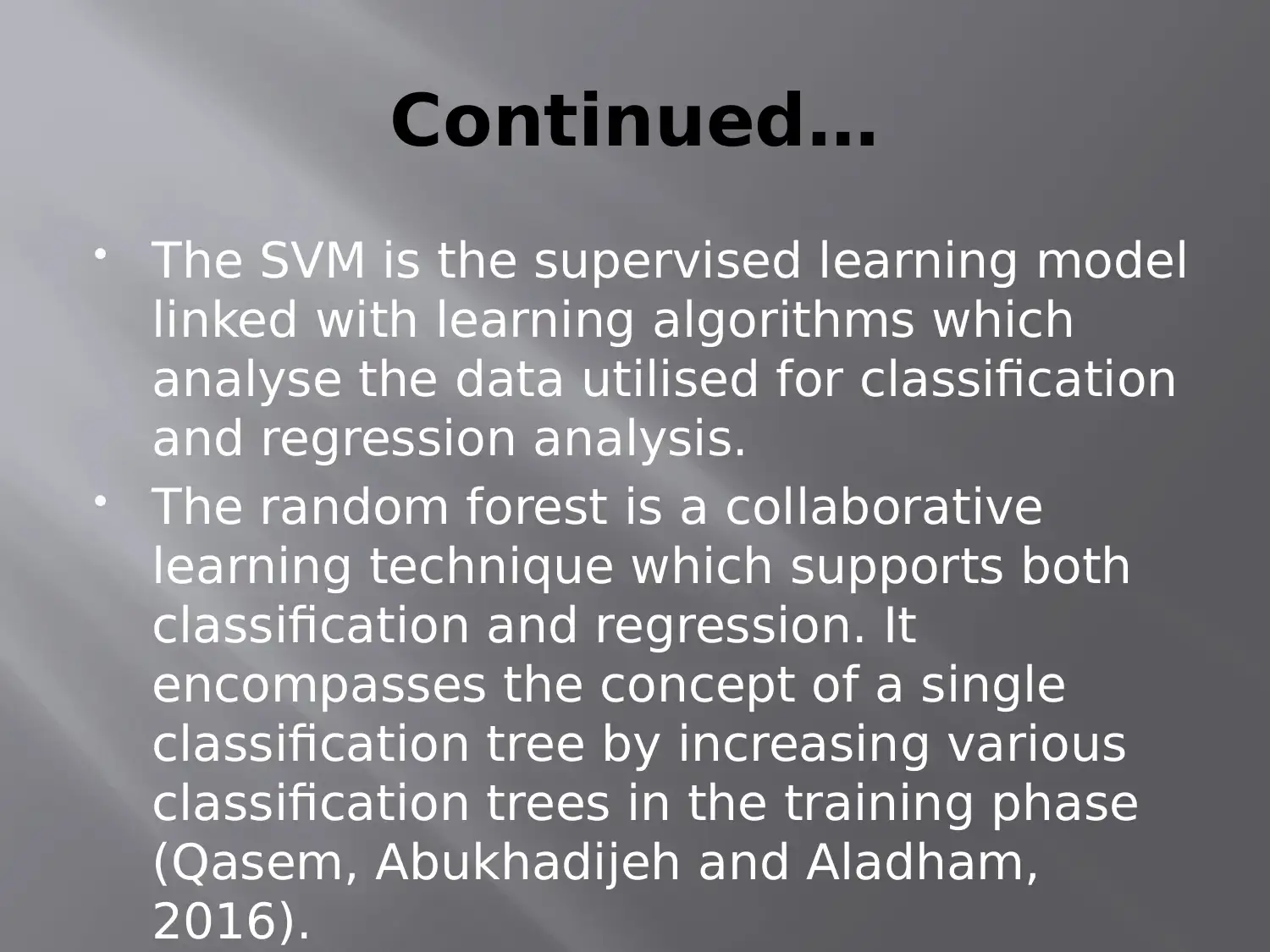
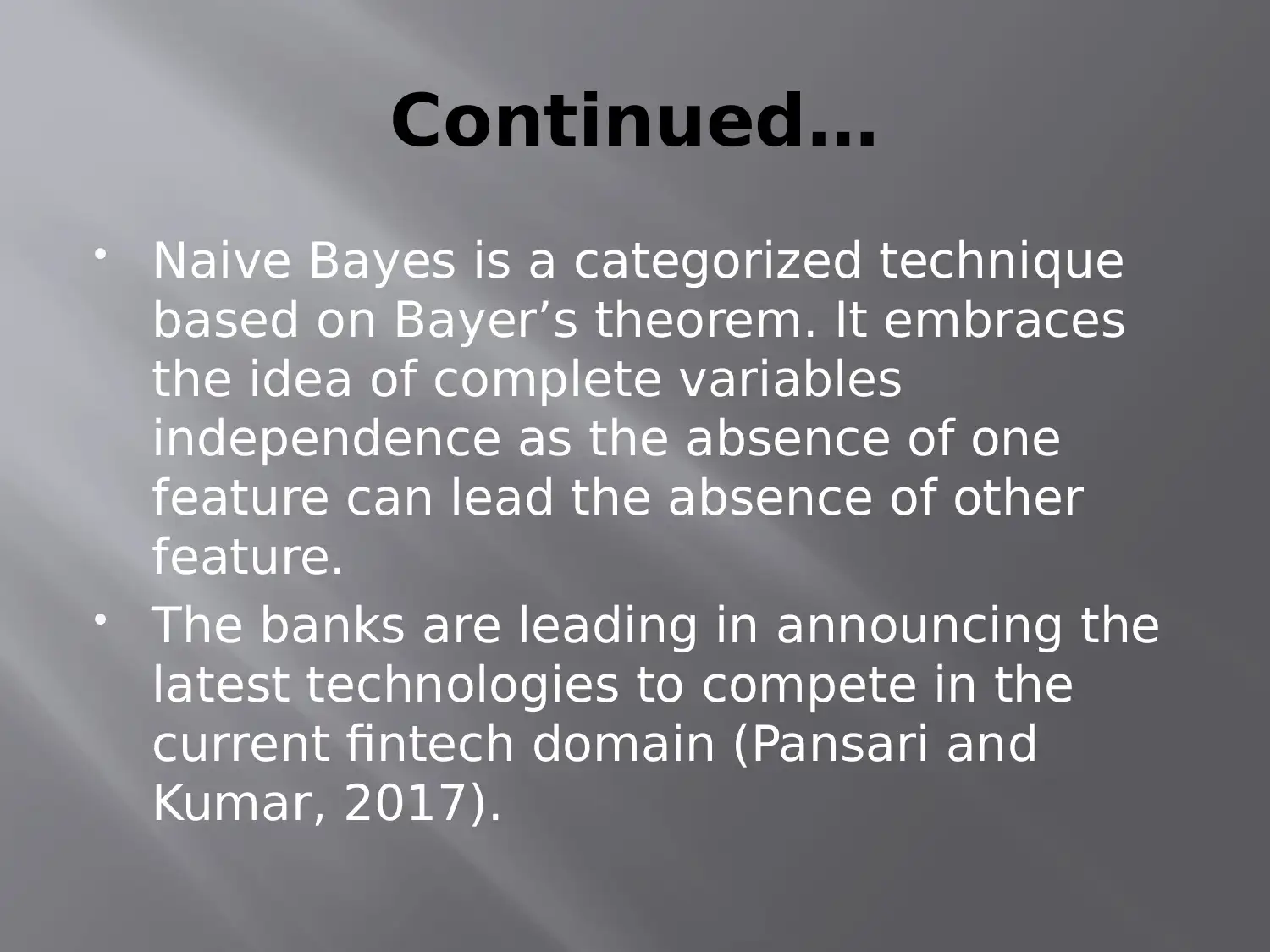
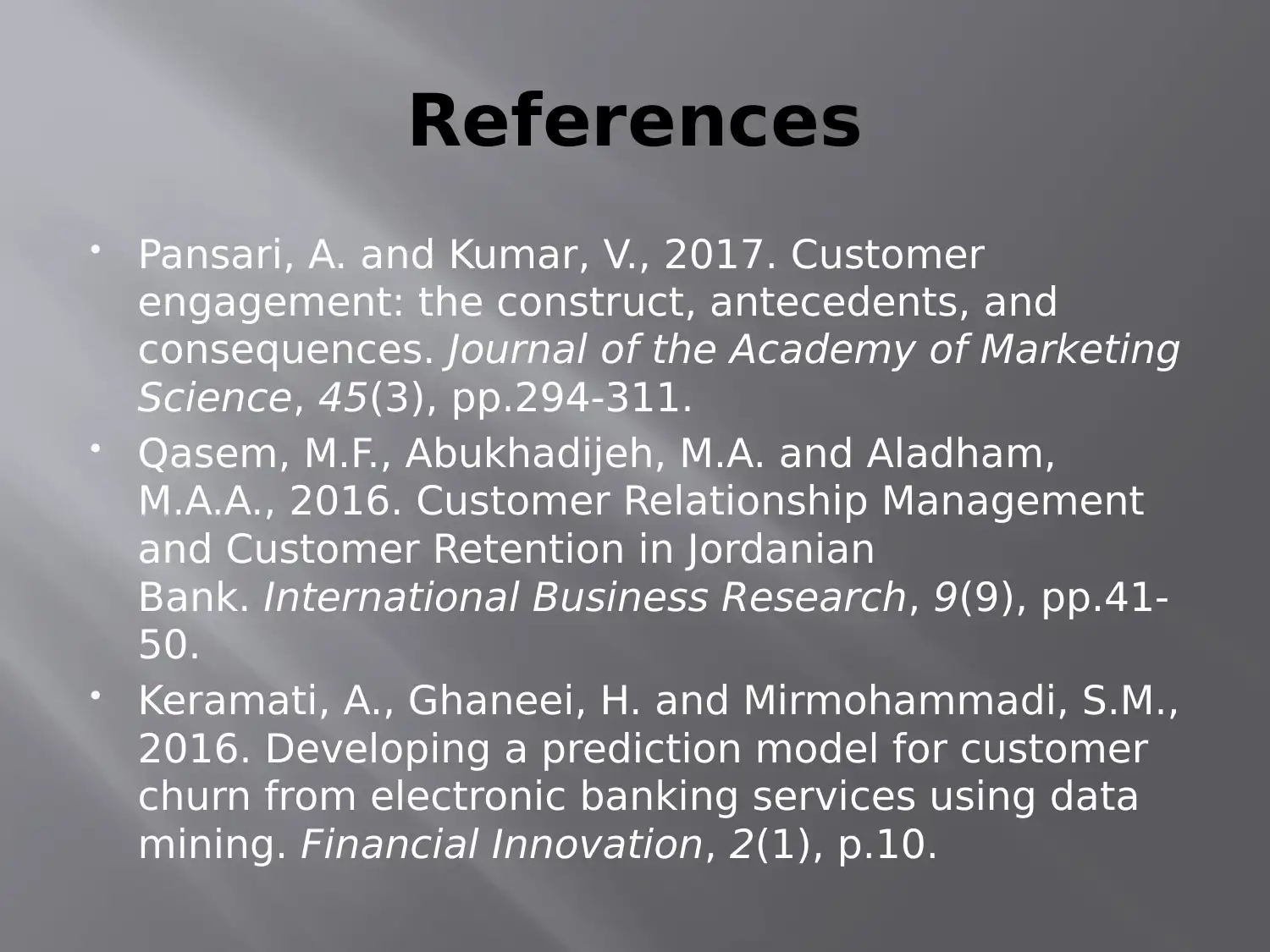
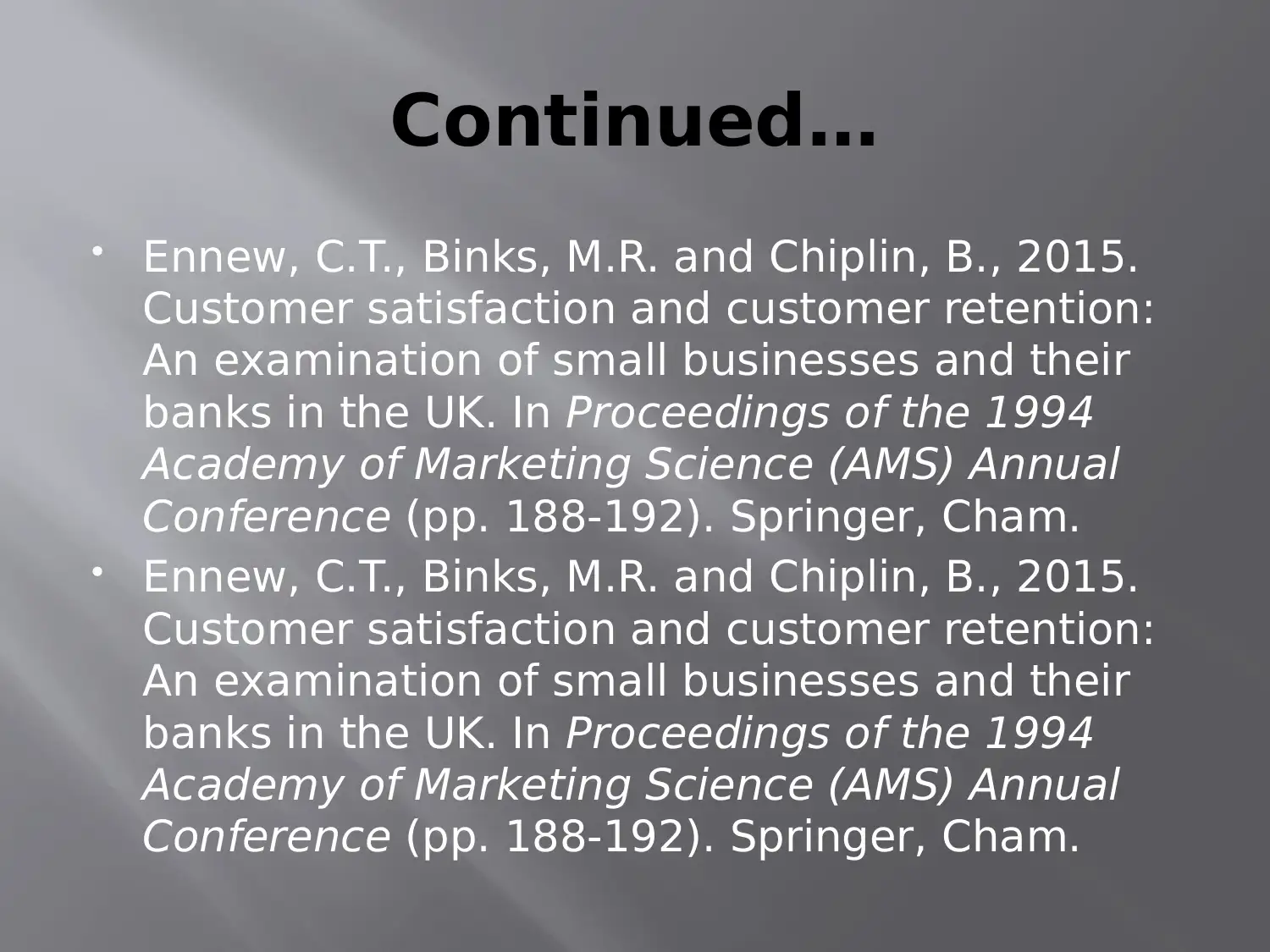
![[object Object]](/_next/static/media/star-bottom.7253800d.svg)